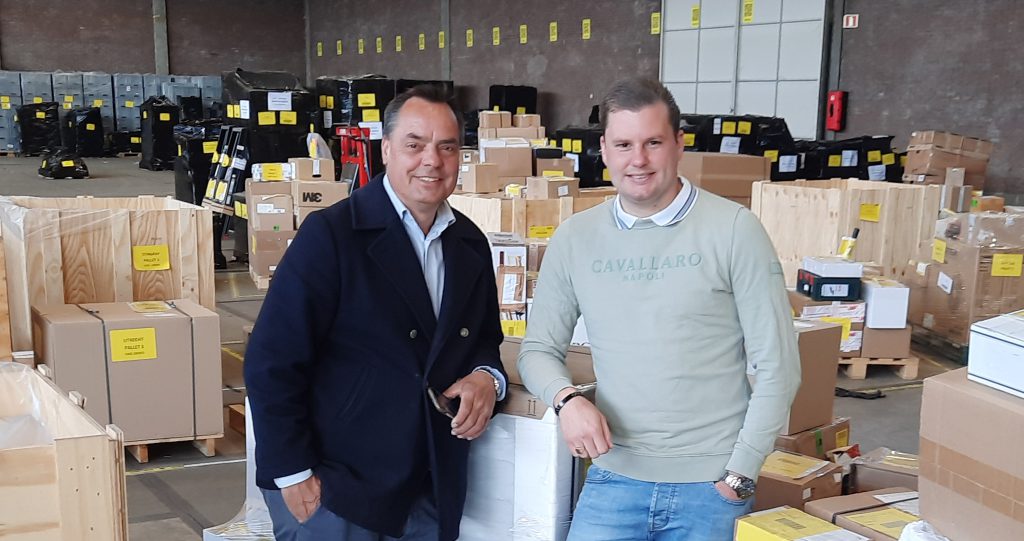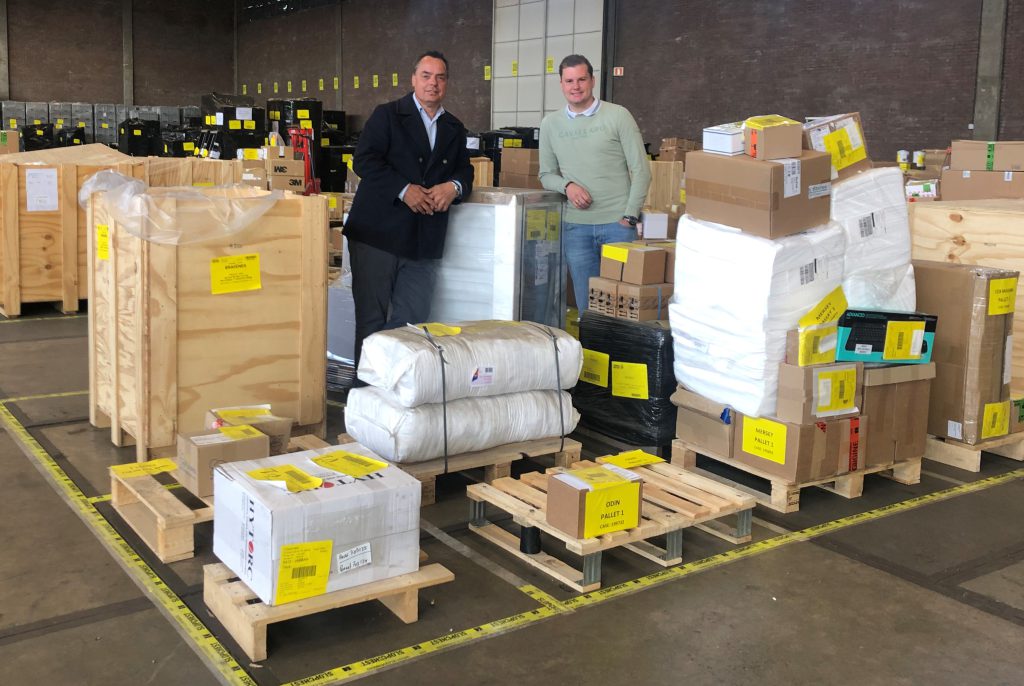OMDS went to talk with Jorn Bertens and Bob van der Maarel, Lead Procurement Van Oord Ship Management and Contract Manager Procurement and Supply Chain respectively at Van Oord and both active members of the OMDS work group. We asked them: 'What's in it for you'? Why is it so important that we, the Dutch maritime sector and manufacturing industry, collaborate and share data efficiently?
Jorn: 'When I think about OMDS... we started in 2016. We're ploughing on and gradually building it up. We now have the momentum to augment our data. And we also have the momentum to introduce an asset management system. That requires the deployment of new workers. At Van Oord, we are working with a new asset management system, plus a new ERP system. We've been saying for years that if you link OMDS to an existing system, it can be simply integrated as an extra feature.

We're now taking the step towards OMDS as a requirement with significant impact. I've made the processes visually comprehensible, from establishing the requirements to converting them into an order, the purchasing and logistics processes and finally the delivery on board. For OMDS, there are a total of 50 fields involved in these processes. With the large number of orders that Van Oord handles, around 25,000 every year, good data plays an important role. When you're on a ship and can order the correct item directly, with no errors in the entire chain, that makes a huge difference in the costs involved?'
'Everything you order on board a ship is exactly what you get. OMDS makes the whole process transparent, minimising errors in the supply chain. It provides a clear insight. Say you indicate that on a ship, a hammer, nut or bolt with certain specifications is needed, that is recorded at the start of the process. The order then arrives at the supplier, who might ask: Is this what you mean? Or they might interpret it their own way which could lead to the supply on board of the wrong item. Roughly 5 percent of what we deliver on board is the wrong thing, and that's a real shame!'
Jorn continues: 'We have a fleet of 100 ships, for which we put an enormous number of processes in motion. This might include a ship working in Europe that receives a lorry-load of deliveries every month - not to mention the shipment and import costs that accompany deliveries to ships in the Far East or Brazil. Pristine data is hugely important. That's why OMDS and ETIM are so valuable. Say a ship ends up with the wrong item... you have to start all over again.'
Jorn: 'Definitely! Not only that, but every day, there are people working on interconnecting all the processes. And this group of around 25 handles the needs of a couple of thousand people on board. Approximately 50 percent of our operational purchasing activities are spent on transactional tasks, filling in the missing data. And they put all sorts of suppliers to work who come back with questions like "What do you mean exactly?".

All these people represent significant costs. It's not just about the buyers. It's about being able to ensure that the people on the ship get the right delivery from the start. If they get something that's incomplete or incorrect, the process goes back to purchasing. That department goes back to the supplier again who asks another question. And that's how we keep each other busy if we don't deal efficiently with data. And the people on board don't have time to work out what's needed - they want to get working!'
Bob van Maarel adds: 'It sometimes goes in phases too. For example, if a part of a pump is being transported, you have a different data need, one that goes further than just a serial number. If, after the order has been made, you discover that another code has to be provided that you don't yet have in your data system, that causes a huge delay and you have to start all over again from the beginning.'
Jorn: 'I work 40 hours a week and in that time, I always spend a few hours correcting data, directly or indirectly. Whereas in talks with a supplier, I'd rather be discussing matters that are important. Not just processes that are not working, data that are incomplete. I want to be able to have strategic conversations. And don't forget: we have hundreds of suppliers with maybe an important top ten. So my time needs to be spent well. And the same goes for the suppliers too: it's a waste of their time to be talking about things that don't lead to anything. There might be half an hour left of a three-hour conversation in which to talk about things that are lucrative for both of us.'
Jorn: 'What's our core business? Our ships need to operate! And as well as mismatches in invoices or items supplied, we also have to think about sustainability and cyber security in the purchasing process. I want to deploy the capacity we have in good purchasing too.'
Bob: 'I think it's also wise to look at things from the perspective of the supplier in this big picture. We have to make it clear to suppliers that it benefits them hugely if they maintain and upload their data to a single central platform. All purchasing parties in OMDS - such as vessel owners, dredgers, shipbuilders - can then get all the data for their clients from that one platform. We all need the same kind of data, certainly with international transports. It's such a waste of time if everyone has to keep reinventing the wheel.'
Would it help if we illustrated with some great case studies, from the installation sector for example, that show that OMDS and the 2BA data pool really work?
Jorn: 'Absolutely! But we need to find a bit of a 'sexy' company, a case that you want to relate to. I think it would be big help if we, as OMDS, could refer to that. We see that the original initiators of OMDS are really making progress. And we need to make sure that it's clear for everyone and demonstrate the urgency. In the end, it could grow exponentially. The more companies that join, the better it will work. And if you're not part of it then, you'll miss the boat.'
'The most important thing is to clearly show the reason for improving efficiency. We have to earn back for all those people involved in that purchasing process, with dredging and with building ports. If people on board have to waste their time searching for correct data, preparing maintenance and everything that involves, and you offset that against the costs. If you start with a ship, and you have, let's say, 13,000 items on board, and five years later maybe a thousand more, we're losing a lot of money on minor errors that have significant consequences on the whole purchasing process. Certainly if we keep occupying each other with our own Excel sheets. And yes, there are costs involved in implementing a new ERP system that can connect with the 2BA data pool, but in the end - when everything works faster, better and more transparently - it will pay off!'